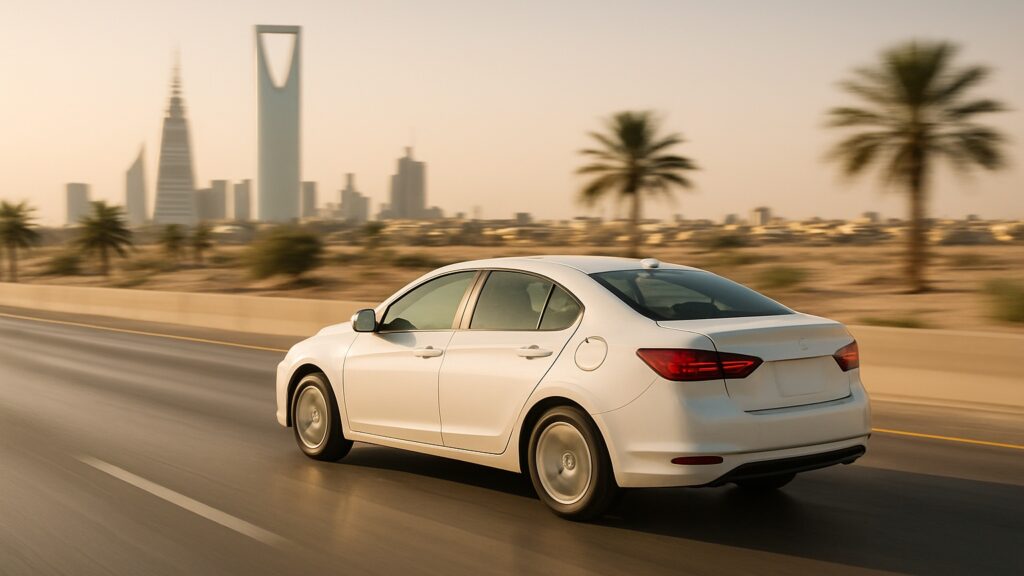Driving in Saudi Arabia offers a unique blend of wide highways, vast deserts, and modern road infrastructure—but with that freedom comes strict rules, especially when it comes to speed limits. Whether you’re cruising through Riyadh’s expressways or navigating narrow streets in Jeddah, it’s essential to understand how fast you’re legally allowed to drive—and the penalties for getting it wrong.
Traffic authorities in KSA continue to invest heavily in digital enforcement systems to reduce accidents, improve public safety, and discourage reckless driving. That means speeding fines are steep, and the margin for error is small.
This guide breaks down everything you need to know: official speed limits by road type, enforcement zones, delicate structures, driving strategies, and real-world tips to keep your record clean and your journey safe.
Official Speed Limits in Saudi Arabia
Speed limits in Saudi Arabia vary based on road classification, traffic volume, and vehicle type. Here’s a breakdown:
1. Urban Roads (City Centers and Residential Streets)
- Default Limit: 50 km/h
- May reach: 60 km/h on larger city arteries
- Zones with lower limits: School areas, hospitals, and markets can drop to 30–40 km/h
2. Rural and Intercity Roads
- Typically set at 80–90 km/h
- May vary depending on road conditions and the surrounding environment
3. Expressways and National Highways
- Standard Limit: 120 km/h
- Selective Routes (e.g., Highway 40): Up to 140 km/h, clearly marked
- Truck & Bus Limit: Usually capped at 80–100 km/h depending on vehicle type and weight
Special Road Situations:
- Fog Zones: May drop to 15 km/h
- Construction Areas: Limits reduced significantly with temporary signage
Speed Enforcement & Camera Systems
Saudi Arabia uses one of the most advanced traffic monitoring systems in the region. The Saher system operates via AI-powered speed cameras and license plate recognition, automatically logging violations.
Where You’ll See Saher Cameras:
- City intersections and roundabouts
- Major highway checkpoints
- Malls, commercial districts, and tunnels
- School zones and hospitals
Speed Buffer Zones:
To avoid penalizing minor unintentional infractions, slight buffers are allowed:
- 120 km/h roads: Up to 130 km/h is usually tolerated
- 140 km/h roads: The buffer shrinks—fines often begin above 145 km/h
However, buffers are not a guarantee. It’s safest to stay 5–10 km/h below the maximum limit.
Speeding Fines in Saudi Arabia
Speeding in Saudi Arabia is a serious offense—especially with repeat violations. Here’s a detailed breakdown:
Roads with a 120 km/h Limit:
- <10 km/h over: No fine
- 10–20 km/h: SAR 150–300
- 20–30 km/h: SAR 300–500
- 30–40 km/h: SAR 800–1,000
- 40–50 km/h: SAR 1,200–1,500
- >50 km/h: SAR 1,500–2,000 + possible points
Roads with a 140 km/h Limit:
- <5 km/h over: No fine
- 5–10 km/h: SAR 300–500
- 10–20 km/h: SAR 800–1,000
- 20–30 km/h: SAR 1,200–1,500
- >30 km/h: SAR 1,500–2,000 + increased penalties for repeat offenses
Repeat Offenses:
Drivers accumulating points may face:
- Suspension of license
- Mandatory driving awareness courses
- Insurance penalties
- Vehicle impoundment in severe cases
How to Drive Safely and Stay Within Speed Limits
Staying compliant isn’t just about avoiding fines—it’s about ensuring safety for yourself, your passengers, and others on the road.
1. Use Cruise Control on Highways
This feature is common in most cars in Saudi Arabia and helps you maintain a consistent speed.
2. Watch for Sudden Limit Changes
Pay attention to signs, especially:
- Near junctions
- School zones
- Rest stops and fuel stations
- After toll booths
3. Adjust for Weather Conditions
Desert roads can turn dangerous quickly in fog, dust storms, or rain. In low visibility, slow down—even if the speed limit hasn’t changed.
4. Respect Vehicle-Specific Limits
If you’re driving a pickup, bus, or delivery van, check your category’s speed cap. Enforcement is stricter on heavy vehicles.
Pro Tips to Avoid Speeding Fines in KSA
- Install a Speed Alert App: Many GPS apps offer audible alerts when you approach the speed limit.
- Stay Updated on Road Rules: Speed limits and enforcement rules are sometimes updated without notice.
- Keep Your Dashboard Clean: No stickers or dirt should obscure your view of the speedometer.
- Drive During the Day: Visibility is better, and it’s easier to spot signs and cameras.
- Never assume the Limit: Just because one section allows 120 km/h doesn’t mean the next one will.
Final Thoughts
Understanding and respecting speed limits in Saudi Arabia isn’t just about avoiding tickets—it’s a key part of being a responsible driver in a country with a strong focus on road safety.
With clearly marked zones, cutting-edge enforcement systems, and fair (yet firm) delicate structures, the Saudi road network is designed to keep all road users safe. Whether you’re an expat, local, or tourist, taking the time to follow speed regulations can protect your wallet, your record, and your life. Drive smart. Stay alert. Respect the limits.
FAQs
Q1: Are all highways in Saudi Arabia limited to 140 km/h?
No, only select routes have a 140 km/h limit. Most remain at 120 km/h unless otherwise posted.
Q2: Can I dispute a Saher speeding ticket?
Yes. You can appeal through the Absher platform, but you must provide evidence or justification.
Q3: How soon do fines show up?
Usually within hours via SMS. You can also check your status on Absher.
Q4: Do radar detectors work in Saudi Arabia?
Radar detectors are illegal. Use legal driving aids like cruise control and in-car alerts instead.
Q5: Are there speed restrictions during religious seasons like Hajj or Ramadan?
Yes. In crowded zones like Makkah and Madinah, special speed rules and heavy surveillance apply during those months.
Follow Arabwheels blogs for more helpful guides and the latest automotive information.
